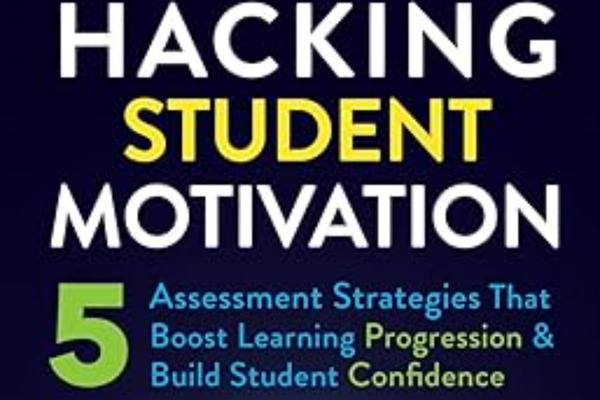
*This is a blended learning course that will meet online for five Tuesdays. It is worth 15 CECH or one graduate credit. The Zoom meeting will take place at 5:30 PM Mountain Time / 6:30 PM Central Time. March 24 (Introduction meeting - 30 minutes) March 31 April 7 April 14 April 21 April 28 Ditch the Old Assessments to Motivate Your Students & Build Confidence All educators have witnessed students hang their heads after an assessment and give up because they just can’t see a path forward. It’s frustrating and heartbreaking for everyone. Now, there’s a solution. Hacking Student Motivation taps into students’ perspective and motivation, creating a classroom environment where failure is simply a part of learning, and growth is the focus for everyone in the room. Learn: How to teach bored students How to create more meaningful assessment structures and practices How to redesign grade books to focus on learning, growth, and interests How to develop learning progressions and HyperRubrics so students take ownership How to establish helpful feedback systems that focus students on improvement How to personalize learning and success through one-on-one conferences Implementing these hacks not only makes assessment more powerful and meaningful in the classroom but also changes your students’ assessment experience. Goodbye, anxiety, fear, and doubt. Hello, self-efficacy, confidence, and hope. Read Hacking Student Motivation today for more confident, resilient, and successful students tomorrow. Read more

**This course is worth 15 continuing education contact hours or one graduate credit.** Overwhelmed teachers, this book is for you. The truth is that you can be remarkable without burning out. Drawing from the latest research and her own teaching experiences, author Morgane Michael delivers doable strategies to reignite your passion and replenish your well-being. Make a commitment today to begin a new chapter--one where you continue to make a difference while maintaining a deep sense of wellness, worthiness, and wholeheartedness. Learn why burnout happens and what you can do to thrive once again. Explore the five Rs--reflect, reframe, refocus, reconnect, and reveal--and understand how each can help counter burnout. Acquire a clear road map for reigniting your love for teaching. Inspire others to reignite their own passion for education. Discover how to sustain your passion and avoid burnout going forward. Book: “From Burnt Out to Fired Up: Reigniting Your Passion for Teaching” by Morgane Michael ISBN-10: 1952812631 ISBN-13: 978-1952812637 Website: https://www.solutiontree.com/from-burnt-out-to-fired-up.html Read more
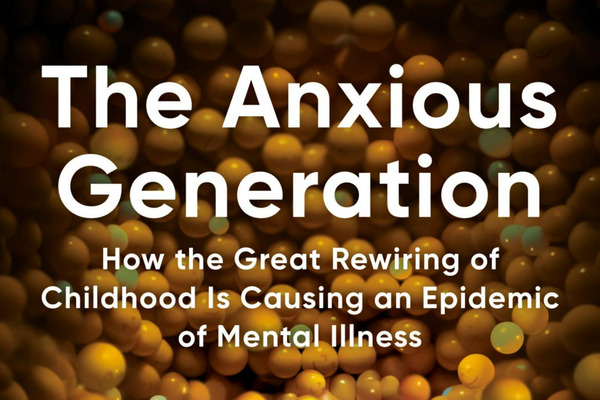
* This course is worth either 30 continuing education contact hours (CECH) or two graduate credits. After more than a decade of stability or improvement, the mental health of adolescents plunged in the early 2010s. Rates of depression, anxiety, self-harm, and suicide rose sharply, more than doubling on many measures. Why? In The Anxious Generation, social psychologist Jonathan Haidt lays out the facts about the epidemic of teen mental illness that hit many countries at the same time. He then investigates the nature of childhood, including why children need play and independent exploration to mature into competent, thriving adults. Haidt shows how the “play-based childhood” began to decline in the 1980s, and how it was finally wiped out by the arrival of the “phone-based childhood” in the early 2010s. He presents more than a dozen mechanisms by which this “great rewiring of childhood” has interfered with children’s social and neurological development, covering everything from sleep deprivation to attention fragmentation, addiction, loneliness, social contagion, social comparison, and perfectionism. He explains why social media damages girls more than boys and why boys have been withdrawing from the real world into the virtual world, with disastrous consequences for themselves, their families, and their societies. Most importantly, Haidt issues a clear call to action. He diagnoses the “collective action problems” that trap us, and then proposes four simple rules that might set us free. He describes steps that parents, teachers, schools, tech companies, and governments can take to end the epidemic of mental illness and restore a more humane childhood. Haidt has spent his career speaking truth backed by data in the most difficult landscapes—communities polarized by politics and religion, campuses battling culture wars, and now the public health emergency faced by Gen Z. We cannot afford to ignore his findings about protecting our children—and ourselves—from the psychological damage of a phone-based life. Book: The Anxious Generation: How the Great Rewiring of Childhood Is Causing an Epidemic of Mental Illness by Jonathan Haidt ISBN-10: 0241694906 ISBN-13: 978-0241694909 Website: https://www.anxiousgeneration.com/book Read more
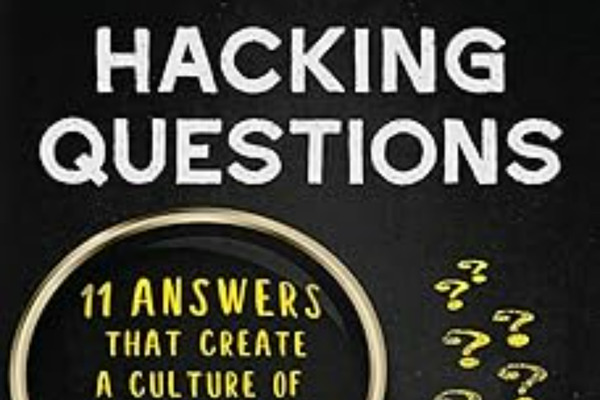
Do you need to ramp up your classroom questioning techniques? Questions are the driving force of learning in classrooms. Hacking Questions digs into framing, delivering, and maximizing questions in the classroom to keep students engaged in learning. Known in education circles as the "Questioning Guru," Connie Hamilton shows teachers of all subjects and grades how to: Hear the music: listen for correct answers Scaffold to trigger student thinking without doing it for them Kick the IDK bucket to avoid “I don’t know” as the final answer Punctuate your learning time to end with reflection questions Spin the throttle to fuel students to ask the questions Fill your back pocket with engagement questions Make yourself invisible by establishing student-centered protocols Be a Pinball Wizard and turn students into facilitators Book: “Hacking Questions: 11 Answers That Create a Culture of Inquiry in Your Classroom” by Connie Hamilton ISBN-10: 1948212145 ISBN-13: 978-1948212144 Read more
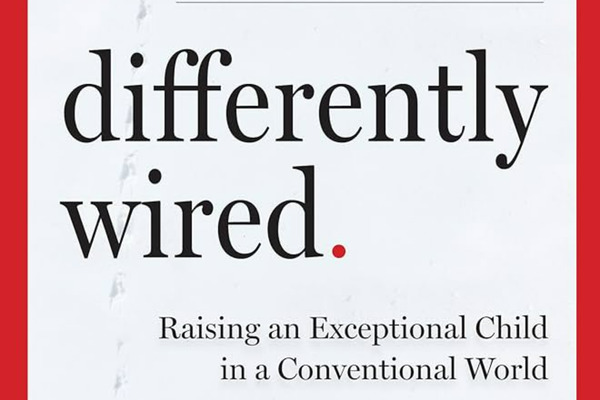
*This is an asynchronous course worth 15 CECH or one graduate credit. The purpose of this book study is to explore the way how we ALL play a role in changing the way neurodifference is experienced in the world. Real life stories of children with neurodifferences and understanding the need for programming differences for all children will be explored. At the heart of Differently Wired are 18 paradigm-shifting ideas or “tilts,” suggesting a path for how parents, caregivers, and educators can shift our thinking and actions in a way that not only improves the family dynamic, but also allows children to fully realize their best selves. Topics Covered: Parenting, autism, ADHD, dyslexia, other conditions, tilts BOOK: “Differently Wired-Raising an Exceptional Child in a Conventional World” by Deborah Reber, Workman Publishing ISBN: 9781523502127 Websites: www.tiltparenting.com and https://tiltparenting.com/podcast-about-children-with-learning-disabilities/ Read more
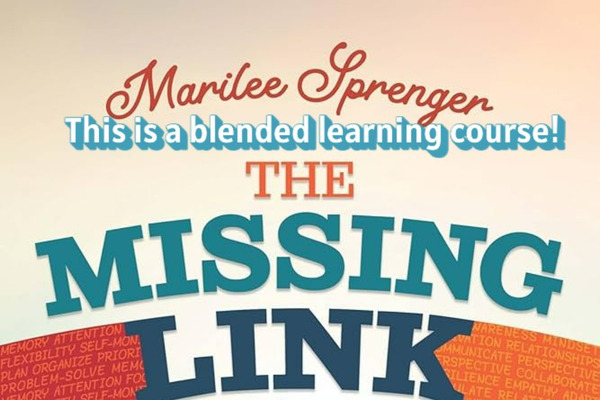
*This is a blended learning course that will meet online for five Tuesdays. It is worth 15 CECH or one graduate credit. The Zoom meeting will take place at 5:30 PM Mountain Time / 6:30 PM Central Time. February 3 (Introduction meeting) February 10 February 17 February 24 March 3 March 10 What if you could help your students who are struggling academically simply by teaching them executive function skills? If you're a teacher, chances are you're familiar with the student who never finishes homework, the one who always interrupts, the one who can't seem to pay attention during lessons. Too often, we assume these characteristics are innate or chalk them up to lack of discipline, when in fact they are executive function issues that teachers can easily address— and even help to reverse— with a little guidance. In The Missing Link to Help Them Think, veteran educator and bestselling author Marilee Sprenger imparts that guidance with a wealth of practical, research-based classroom strategies teachers can use to develop six core areas of executive function skills (EFS): impulse inhibition; working memory; attention and focus; cognitive flexibility; self-monitoring; and planning, organization, prioritization, and time management. In addition, Sprenger • Explains how executive function skills bridge the gap between social-emotional learning and academics and how to develop both skill sets at the same time. • Discusses the research on and neurological origins of different executive functions. • Provides practical, easily implemented self-assessment tools that teachers and students can use to evaluate their strengths and needs related to executive functioning. All students can improve their executive function skills and succeed in the classroom. With strategies and examples across grade levels and relevant to all subject areas, this thought-provoking book gives you the resources necessary to support them in this journey. Book: "The Missing Link to Help Them Think: Connecting Executive Function and SEL Skills to Boost Student Achievement" by Marliee Sprenger ISBN-10: 1416633243 ISBN-13: 978-1416633242 Read more
Shopping Cart
Your cart is empty
